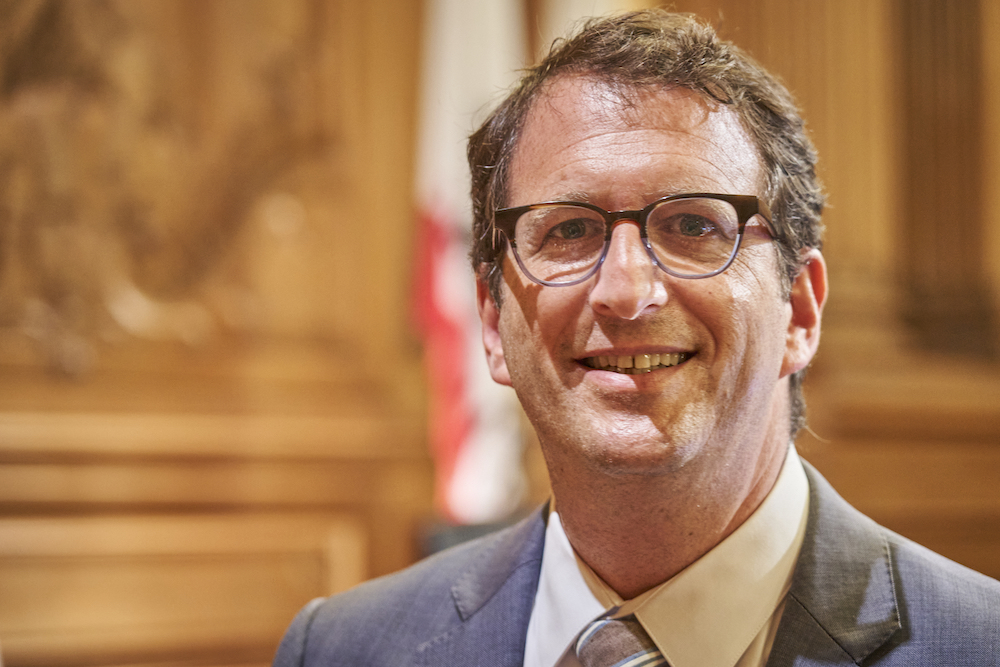The director of the Mayor’s Office of Housing confirmed today that none of the Prop. I money designated for affordable housing will be used for that purpose in this year’s budget.
He also admitted that there is no increase in funding for small-sites acquisition.
The measure, approved by voters in the fall of 2020, imposed a new tax on high-end real-estate transactions, and that money was supposed to go for rent relief and affordable housing.
But Breed has consistently refused to spend that money on housing, saying that since it was a general tax, she can spend it any way she wants. (A general tax requires 50 percent plus one; a specific tax requires two-thirds of the votes. And the City Attorney’s Office said at the time that a transfer tax couldn’t be a specific tax. That’s why supporters put Prop. I on the ballot as a general tax—but the ballot arguments made clear this money was going for affordable housing.)

The tax has raised more than $300 million, and is projected to bring in net $102 million more in the next two years.
Under questioning at the Budget and Appropriations Committee by Sups. Dean Preston and Connie Chan, Director Dan Adams said that the mayor does not intend any “net new funds” from the city for rent relief, affordable housing, or site acquisition.
In fact, he said, the only new funds he expects would come from a prospective fall regional bond that, if passed, would raise $20 billion for affordable housing in the Bay Area. San Francisco would get about $2 billion of that.
But at the same time, thanks to state budget cuts, the matching funds San Francisco often gets for subsidized housing won’t be around next year—so the $2 billion won’t go as far as it normally would.
So the Prop. I money would make a huge difference.
The Housing Element that the mayor’s planners wrote, and the supes all approved, includes clear language stating that the city needs to spend the Prop. I money on affordable housing (or the city will be unable to meet its state-mandated goals). It states:
“The City should utilize the two new sources of funding, gross receipts tax, and the Real Estate Transfer tax, to partially meet our funding gap, and consider new funding sources such as a new affordable housing bond, and other sources to meet the gap.”
In a May 24 letter to the Mayor’s Office, Preston noted that the city’s own housing advisory board has said the same thing:
As you know, the Housing Stability Fund Oversight Board is a policy body that provides guidance on the use of Prop I funds to create social housing in San Francisco. The Oversight Board is composed of a remarkable group of affordable housing stakeholders, advocates and experts, and each year they are tasked with submitting their recommendations to the Mayor and the Board of Supervisors.
● $10M – Site Acquisition for Social Housing
● $10M – Development Costs for New Social Housing
● $12M – Acquisition and Rehabilitation of At Risk Rental Housing
● $2M – Operating Subsidies for Seniors and People with Disabilities
As the Oversight Board notes in its letter, “While this year’s $34 Million in Prop I revenues are smaller than previous years, if enacted these recommendations for uses of that revenue will have a significant impact in the long term. Investments in sites for new construction and in existing at-risk housing in a ‘down’ real estate market are particularly impactful before prices recover. Continued investments in new construction and assuring affordability are also critically important to meet our City’s commitments under our Housing Element.
None of that is going to happen if Breed has her way.
So this will be yet another budget fight, and one that shouldn’t be happening. “I look forward to the day,” Preston said, “when we all agree to use affordable housing money for affordable housing.”




